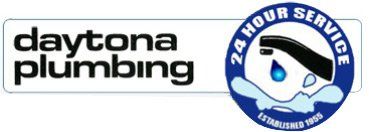Top Questions to Guide Your Choice of Water Heater
The variety of choices for water heaters might overwhelm you if you are in the market for a new system. Understand your hot water needs to guide your selection. A professional plumber can also help you choose your water heater. Start with these questions to help you narrow down the choice.
How Much Hot Water Do You Need?
Your water heater should meet your hot water needs. Consider:
- The number of hot water fixtures, outlets, and appliances you have
- The volume of water the fixtures and appliances need
- How many hot water appliances you are likely to run simultaneously
Your evaluation will tell you the water heater capacity you need. Contact a plumber for accurate calculations. Remember to leave a little room for error. For example, you should not get a water heater with a capacity of 50 gallons if that is what the calculations show — get something slightly more than that.
In addition to capacity, consider how much water the system can heat in its first hour of use. Plumbers call this the first-hour rating (FHR). Otherwise, you might wait a long time to get adequate hot water whenever you turn on the heater.
What Are Your Hot Water Usage Habits?
How you use your hot water determines the type of tank you should get. For example, consider a tankless system if you are usually out of the house and only require hot water occasionally. Tank systems are not ideal for such uses since they maintain hot water, which is energy inefficient.
What Is Your Initial Budget?
Your initial budget determines the water heater you can afford since purchase and installation costs vary considerably. For example, solar water heaters require considerable investment compared to electric or gas water heaters. The difference can be as much as thousands of dollars.
Note that the initial cost depends on the system purchase and labor cost. The labor cost varies by contractor. Get installation costs from multiple contractors for comparison.
Which Energy Sources Do You Have?
Water heaters can use solar, electricity, or fossil fuels such as natural gas. All these energy sources have their pros and cons. For example, many people find gas relatively cheaper than solar.
However, in most cases, the energy source you already have in your home is the best one to use. That will allow you to dispense with the additional cost of connecting your home to a new utility. For example, many people have electricity and gas, so they can easily choose between the two.
How Is Your Climate?
Some water heaters are more useful in some climates than others. The obvious one is solar water heaters, which work best in areas with considerably high hours of sunlight. However, solar water heaters usually require backups for days with minimal sunlight.
Heat pumps also don't work well in all climates. According to consumerreports.org, heat pumps work well in areas with temperatures 40° F to 90° F. The heat pump extracts heat from the air and uses it to heat the water. The extraction is only feasible at moderate to high temperatures.
How Long Do You Want the System to Last?
Lastly, you should also have a good idea of your water heater's durability. For example, tankless water heaters tend to last longer than tank systems. Though costly to install, solar water heaters also have relatively long lifespans. Each water heater's warranty will give you an estimate of its useful lifespan. Note that you must maintain each water heating system for it to last.
Daytona Plumbing has been active in the plumbing industry since 1955. We provide both residential and commercial plumbing solutions, including both plumbing installation and maintenance services. Contact usfor a quote or consultation on water heaters and enjoy our impeccable services.






